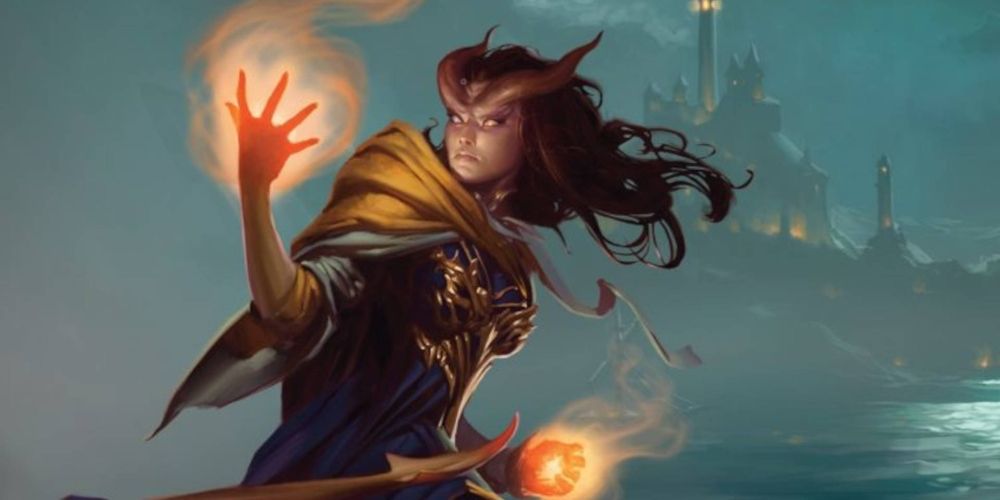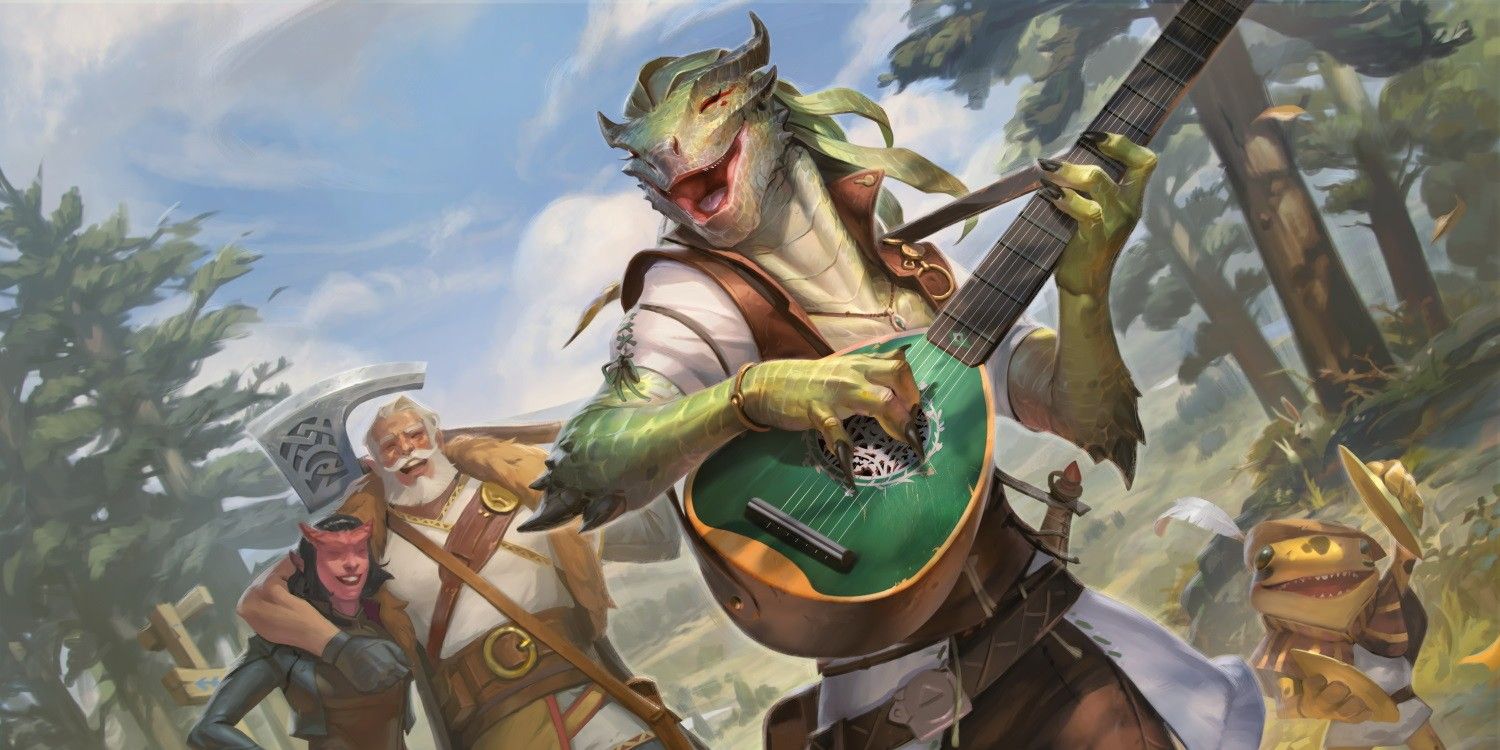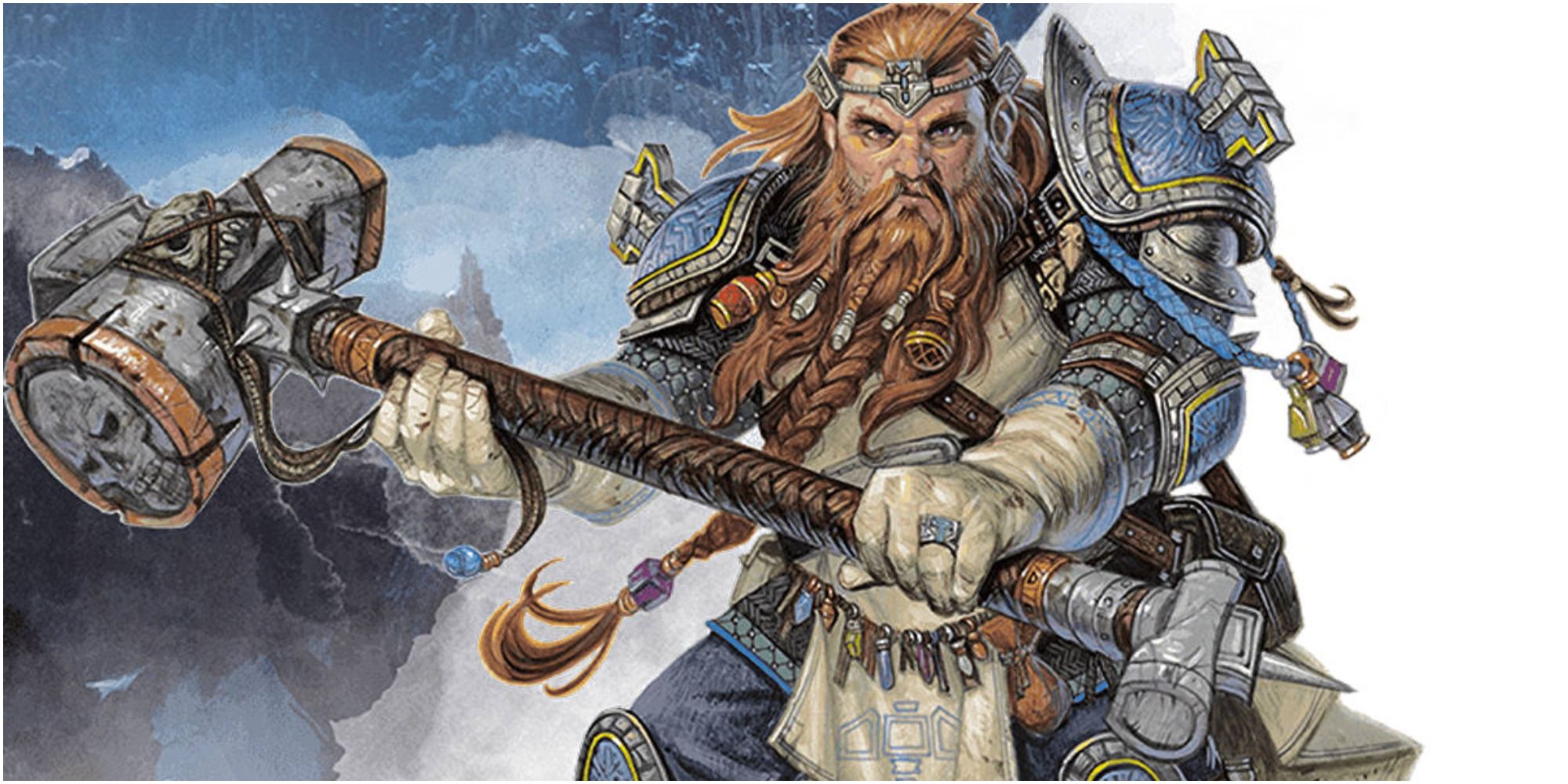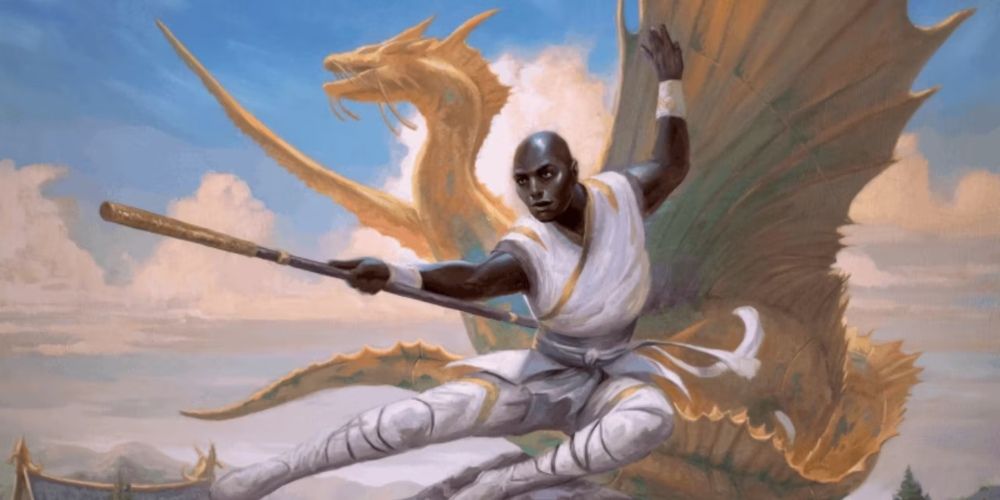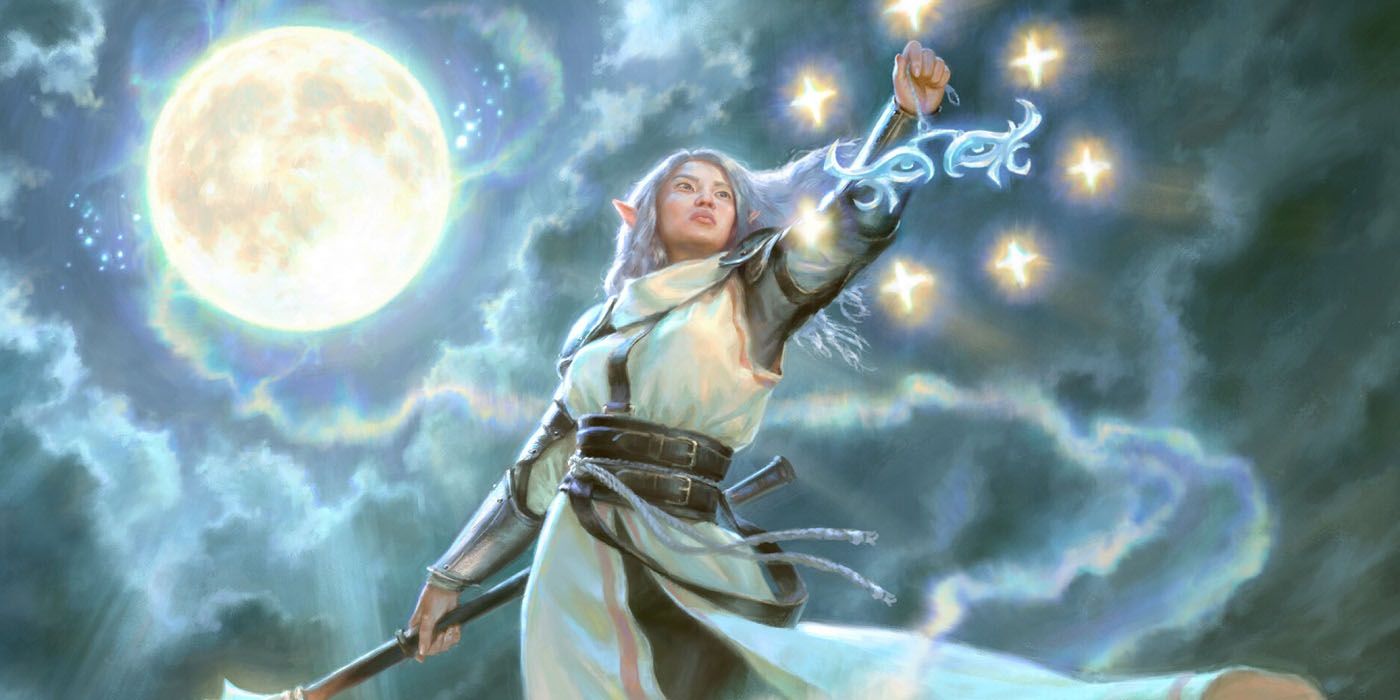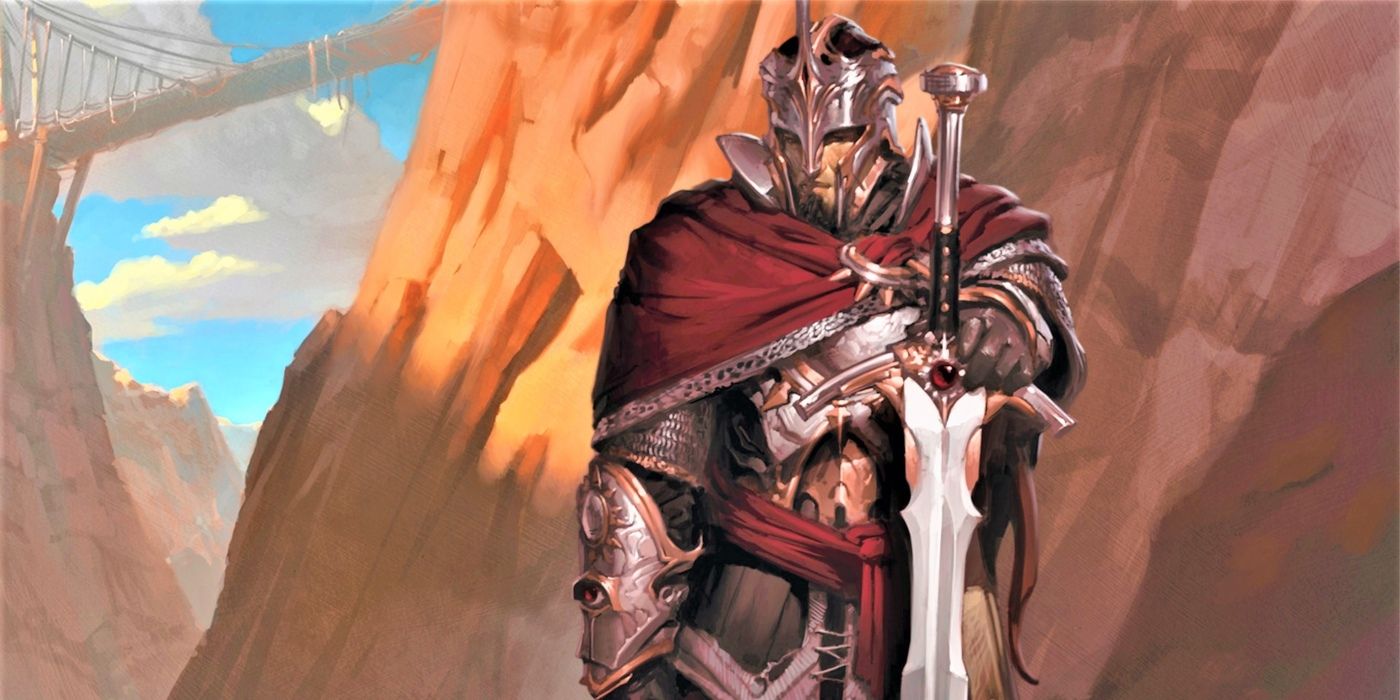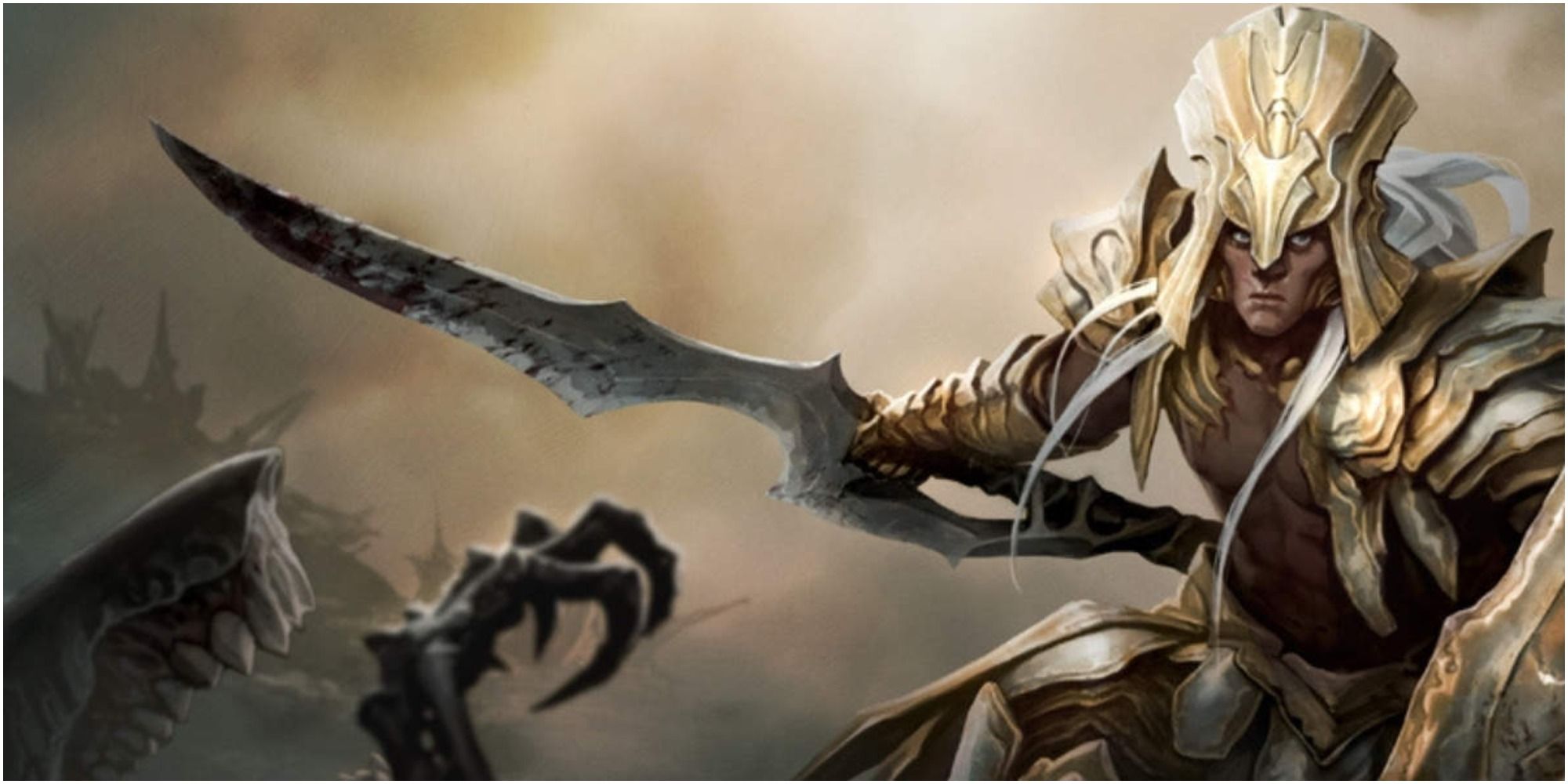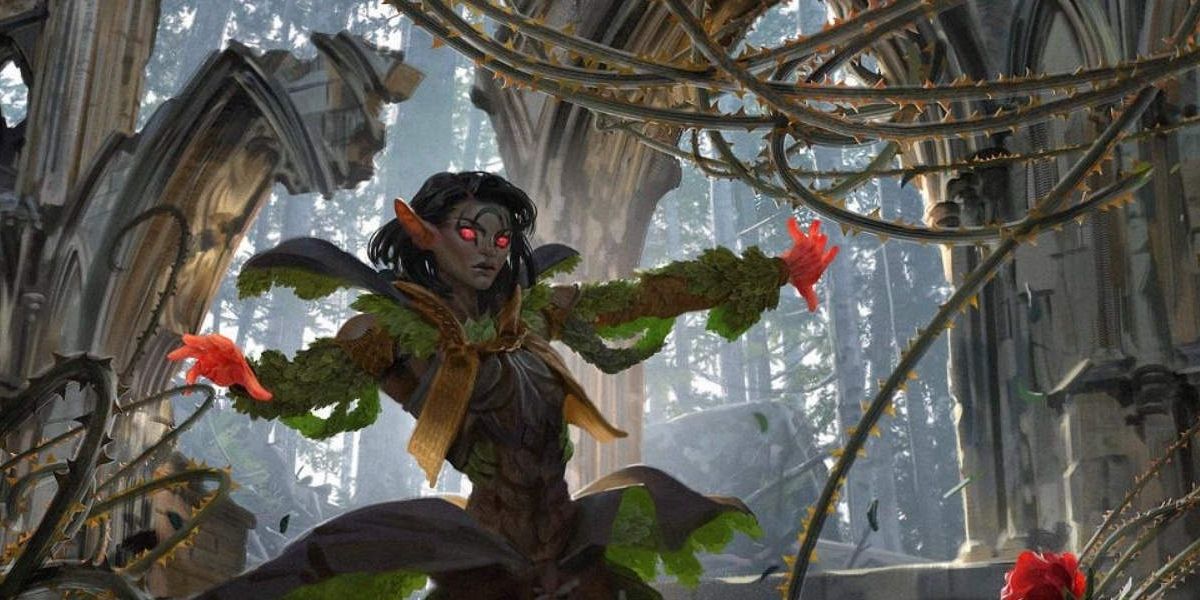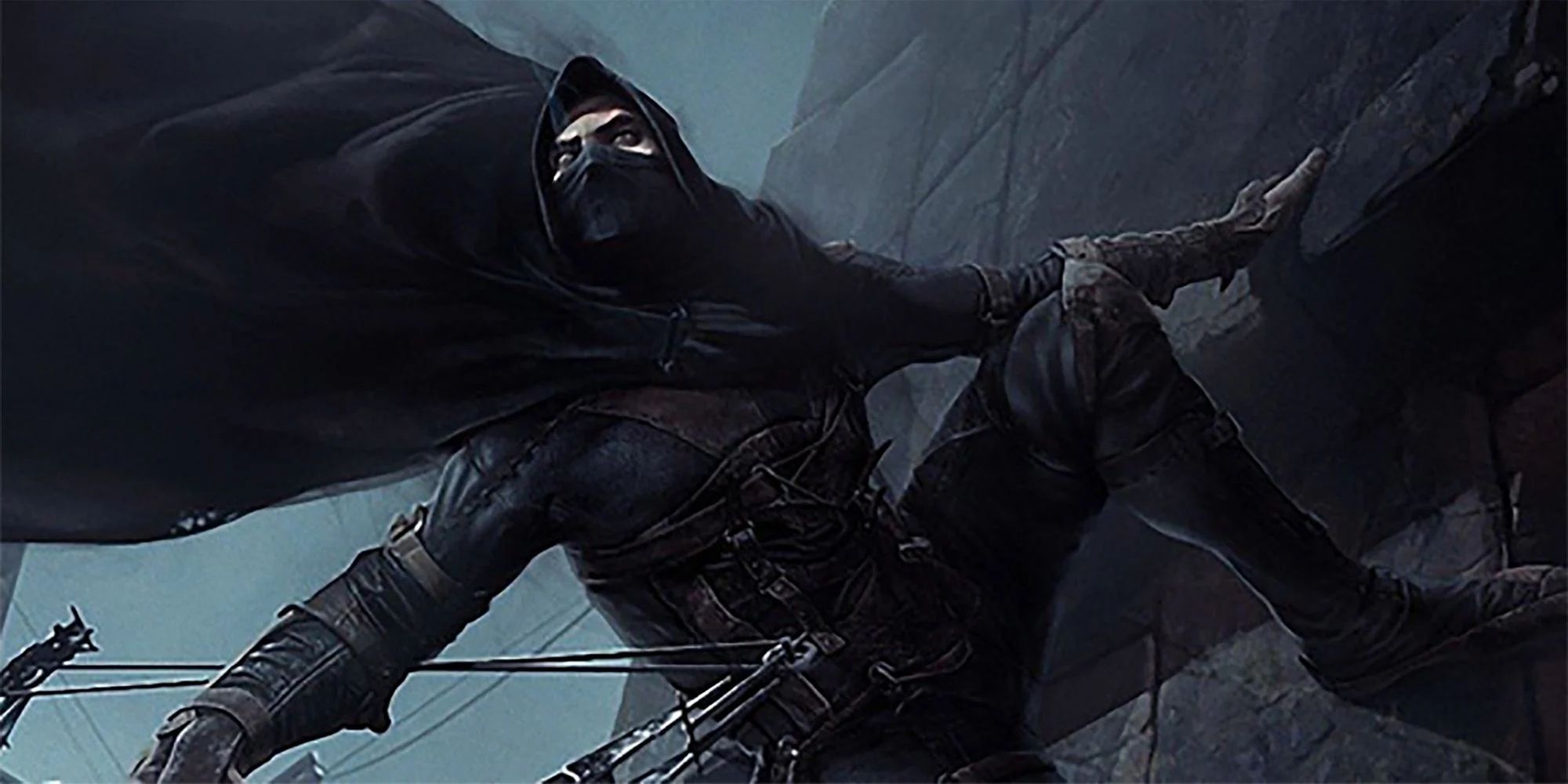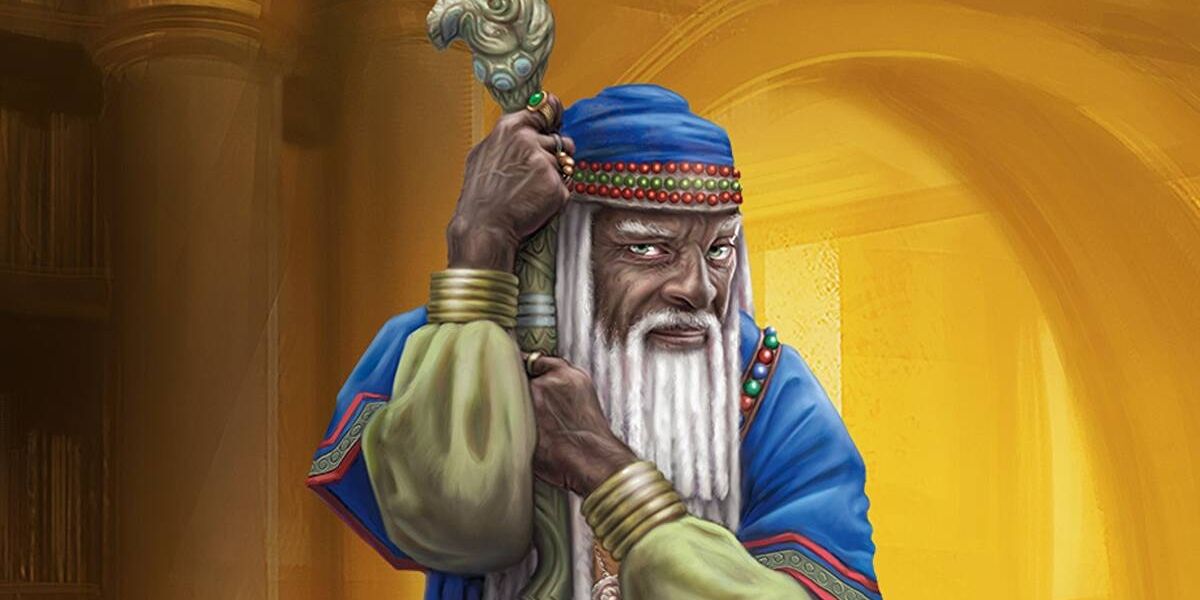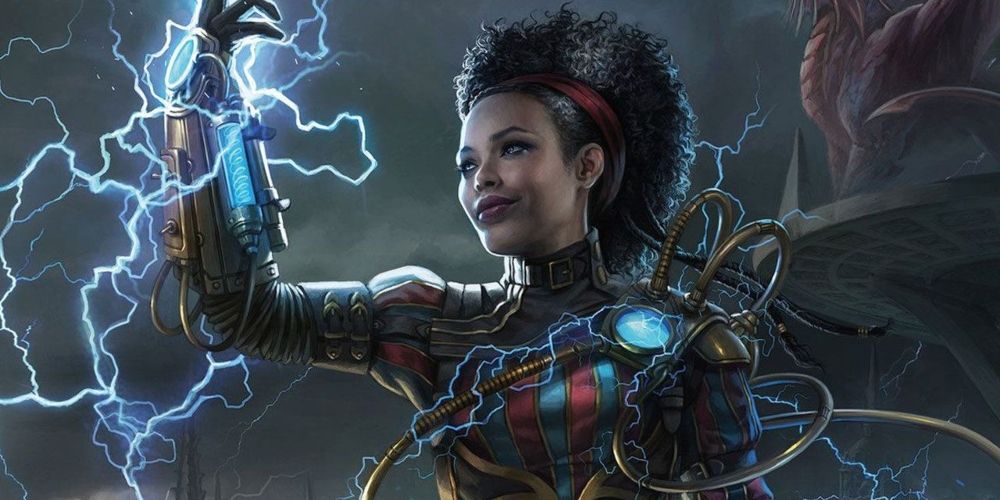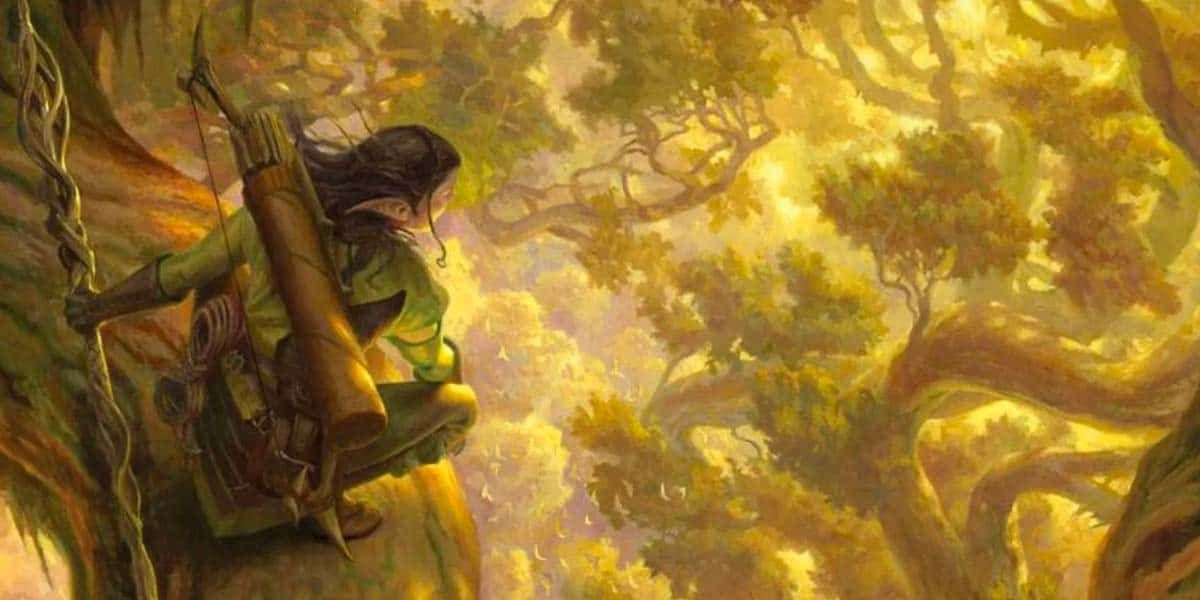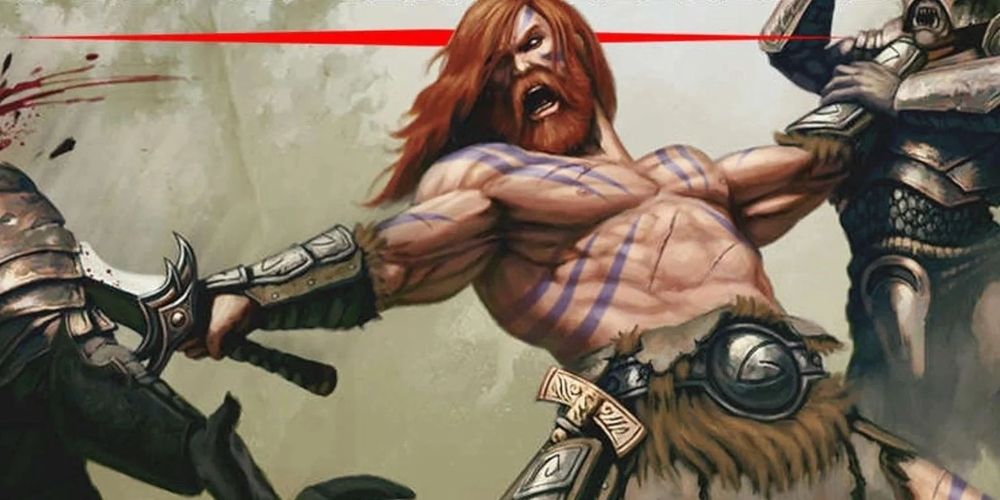Character building is a significant part of Dungeons & Dragons. Players can spend hours fine-tuning their character to contribute to the party, fill in their weaknesses, or simply deal as much damage as possible. A character is the player's way of interacting with the world, and it's important to build them to be enjoyable.
D&D 5e significantly lowers the floor for competent characters. Most players don't need to worry about simple mistakes ruining their game. Nonetheless, each class still has plenty of potential for errors, especially for first-timers. These pitfalls can be easy to fall into and are vital to avoid for most characters.
13 Overlooking Agonizing Blast (Warlock)
The Warlock is D&D's most distinctive spellcasting class. It uses a unique Pact Magic system that is more restrictive than other classes' spellcasting, forcing the player to build around it. One way the D&D warlock compensates for Pact Magic's limitations is with higher at-will damage than most other classes.
However, this choice isn't obvious to most first-timers. To unlock their full potential, a D&D warlock has to choose the Eldritch Blast cantrip and then take the Agonizing Blast Eldritch Invocation at second level. Without this, a warlock loses their best at-will attack and almost halves their potential damage. Even D&D's Pact of the Blade warlock benefits from taking Agonizing Blast. Some players may be tempted by other damaging cantrips, like Fire Bolt or Chill Touch, but Eldritch Blast is far and away the best choice.
12 Underestimating Jack Of All Trades (Bard)
The bard is one of D&D's most flexible classes. This is best shown by its signature second-level ability Jack of All Trades, which lets the bard apply half of their Proficiency Bonus to any ability check they're not proficient in. Many players see the obvious potential in D&D's skills and appreciate the small bonus to rarer checks like History and Animal Handling.
However, many players miss Jack of All Trades' full potential in D&D: it applies to more than just skills. Any ability check benefits from the bonus. This includes Initiative, generic ability checks where no skill applies, and even things like Counterspell at higher levels. Many players miss this significant bonus and only apply Jack of All Trades to skill checks.
11 Only Focusing On Healing (Cleric)
D&D's clerics have a reputation as healers and nothing more. The class' role in earlier editions and in other RPGs has left many D&D players with a one-dimensional view. As a result, many players might build a cleric expecting only to heal and support, unnecessarily limiting their choices.
However, D&D 5e clerics are one of the game's most versatile classes. Most clerics benefit from preparing some healing spells, but they have many more options than that. Even support-oriented Life Domain clerics can pack a combat punch if they pick spells like Spiritual Weapon and Spirit Guardians.
10 Neglecting Wisdom Or Constitution (Monk)
Monks are one of D&D's hardest classes to build. They have an unusual role as skirmishers who are unsuited to frontline combat. In addition, they rely on more ability scores than most D&D 5e classes. Most players can grasp that monks live or die by their Dexterity, but it's easy to overlook one of their two other vital ability scores.
D&D monks need high Wisdom. It benefits their subclass abilities, vital features like Stunning Strike, and their limited Armor Class. At the same time, monks are already D&D's most fragile martial class. Ignoring their Constitution leaves them too frail for combat. It can be hard to balance all three ability scores for a monk, but it's vital to building the class properly.
9 Failing To Specialize (Sorcerer)
Sorcerers have a lot of similarities to wizards in D&D 5e. They share very similar spell lists as the game's two purest arcane spellcaster classes. However, sorcerers are far more limited in the spells they can learn. The subclasses found in the Player's Handbook especially have very few spells, even at high levels.
As a result, a D&D sorcerer has to specialize. They can't just take anything that interests them as a wizard can. Most players building a D&D sorcerer have to choose whether they want to primarily deal damage, buff allies, crowd control enemies, exploit social situations, or explore their environments. This lets a player choose appropriate spells, Metamagic, and subclasses to excel at this role rather than be mediocre at several.
8 Choosing The Wrong Fighting Style (Fighter)
The fighter is often seen as the best beginner D&D class. It's hard to ruin a fighter outside of making deliberately poor choices like dumping Constitution. The only real slip-up that new players are likely to make with D&D's fighter is in Fighting Style. This feature gives fighters bonuses that often apply to specific weapons.
It can be tempting to take Fighting Styles to offset weaknesses, such as taking Archery on a character with low Dexterity. However, D&D characters do best when they lean into their strengths. The obvious choice is often best, such as Dueling on a sword-and-shield fighter or Superior Technique on a Battle Master fighter with a broad choice of Maneuvers.
7 Neglecting Charisma (Paladin)
The paladin is one of D&D's most iconic martial classes. They combine excellent combat skills with powerful divine magic to slay their foes. However, many players can lean too much on the class' physical prowess. Much of the D&D paladin's early features emphasize combat and martial prowess, causing players to focus on Strength and Constitution over Charisma.
However, Charisma becomes more and more vital after the first few levels. Paladin spellcasting shouldn't be underestimated, either in their support spells or Smites. Furthermore, sixth-level paladins get Aura of Courage, which boosts their and their allies' saving throws by their Charisma modifier. D&D paladin players want this as high as possible to capitalize on this game-changing buff.
6 Overemphasizing Wild Shape (Druid)
Wild Shape is a D&D druid's most iconic feature. Often, first-level players only know the druid as the class that can turn into animals. There's no denying Wild Shape's value in D&D 5e. However, there's a versatile and capable class attached to the feature. Only one druid subclass makes Wild Shape a viable option in combat, the Circle of the Moon.
Focusing on Wild Shape to the exclusion of all else prevents a player from exploring the druid's other D&D subclasses, such as the casting-focused Circle of the Land or the pet-based Circle of Wildfire. Even Circle of the Moon druids should be mindful of their other options, such as spellcasting, in challenging combats.
5 Not Specializing Expertise (Rogue)
Rogues are D&D 5e's other best class for skill usage. However, where the bard is versatile, rogues tend to specialize. On top of their many skill proficiencies, they get plentiful access to Expertise. This feature is the single biggest boost to skills available in D&D 5e, and rogues should use it wisely.
D&D rogues have many suitable options for their Expertise. However, they should apply it to skills they intend to use a lot. A burglar wants Expertise in Stealth and Thieves' Tools. A more social rogue wants Expertise in skills like Persuasion, Deception, or Insight. Putting it in skills unrelated to the character's role limits how often the rogue can use one of its best features.
4 Limiting Spell Choices (Wizard)
Wizards are D&D's purest and most iconic spellcasting class. Almost all of their features revolve around casting spells, and they can learn more than any other character. A D&D wizard is designed to be a flexible caster. They can prepare enough spells to be lethal in combat and invaluable for out-of-combat utility simultaneously.
Wizards need to embrace this flexibility to succeed. It's tempting for new players to stick to a small list of spells they understand. However, the wizard spell list is full of incredible and situational magic they can pull out at the right moment. In particular, many D&D wizard subclasses emphasize one school of magic in particular. However, wizards should stray outside of that school whenever they like.
3 Hoarding Infusions (Artificer)
D&D's artificer can be challenging with new players due to how many different systems the class includes. One of its most unique and class-defining are Artificer Infusions. These are magical items the artificer can make, either picking from a limited list of D&D's magic items or choices unique to the artificer.
Given that Infusions are an artificer feature, it can be tempting for a player to pick items that benefit themselves. A D&D artificer can benefit from unique Infusions like Repeating Shot or utility items like a Rope of Climbing. However, the artificer is a support class. They shine best when enabling allies to succeed. Giving the party's fighter a +1 weapon early on can be game-changing for the entire group.
2 Neglecting Spellcasting (Ranger)
The ranger has a reputation as one of D&D 5e's worst classes. However, they're still perfectly lethal when played and built effectively. Rangers are half-casters in D&D, meaning they supplement their martial skills with spellcasting. However, many players take a surface-level approach to ranger spellcasting.
It's easy to rely on a straightforward combat buff like Hunter's Mark and a healing spell like Cure Wounds. However, rangers have a versatile spell list with options for control, buffs, summoning, and more. A D&D ranger is far more effective when a player sits down, goes through the spell list, and experiments with stranger options for their character.
1 Dumping Dexterity (Barbarian)
The barbarian emphasizes one ability score more clearly than many D&D classes. Many of their features highlight Strength as a requirement, such as Reckless Attack and Rage damage bonus. On top of that, barbarians are go-to party tanks, requiring them to have high hit points as well.
However, barbarians also need Dexterity badly. They rely heavily on Armor Class to provide another layer of protection. Even if a D&D barbarian isn't using Unarmored Defense, they can't wear heavy armor that ignores Dexterity modifier. Finally, barbarians start with proficiency in almost all weapons, including lonbows. If a player dumps Dexterity to boost another ability score, they'll have perpetually weak defenses, poor initiative rolls, and no access to long-range attacks if they can't close the distance into melee.


